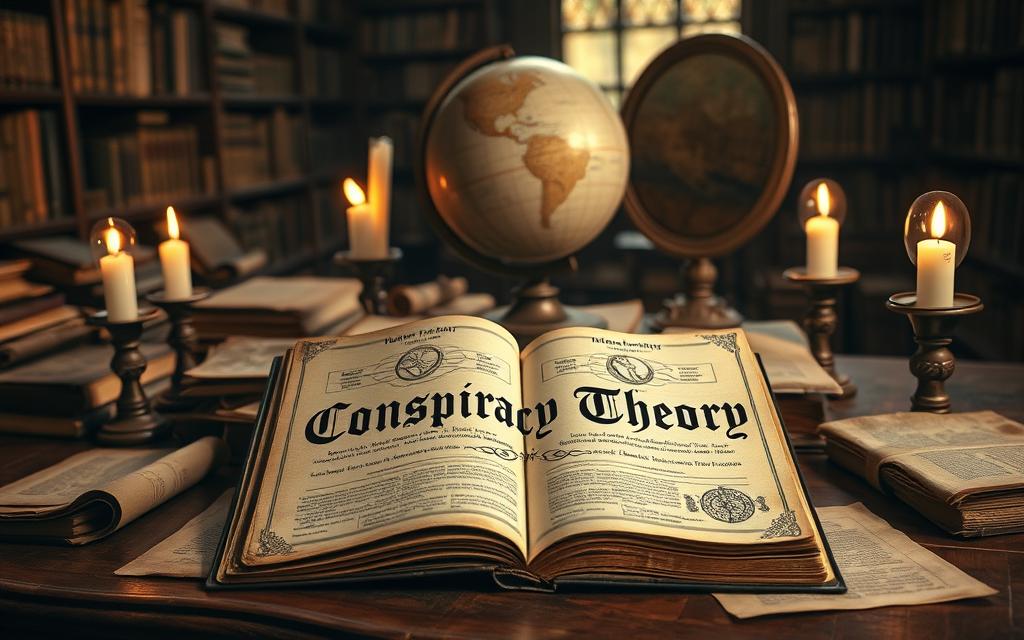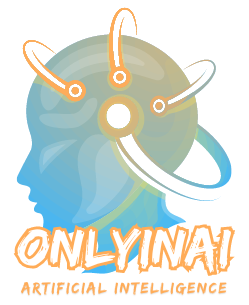Did you know the phrase “conspiracy theory” was first used in 1863? It’s true, this term has been around for over a century. Its origins are quite interesting! As someone who loves language and history, I find the evolution of this term really captivating.
The Oxford English Dictionary defines a conspiracy theory as “the theory that an event or phenomenon occurs as a result of a conspiracy between interested parties.” The first recorded use of this term was in a letter by American author Charles Astor Bristed. He used it in The New York Times in 1863. But it didn’t become popular until after President James A. Garfield’s assassination in 1881. Then, reporters started using it to talk about possible accomplices.
Philosopher Karl Popper also influenced how we think about conspiracy theories today. In his 1945 book “The Open Society and Its Enemies,” he talked about the “conspiracy theory of society.” He believed this view was flawed when looking at historical events. Some say the CIA used the term to discredit critics of the Warren Commission. But research shows there’s no proof for this claim.
The history of the term “conspiracy theory” is complex and goes back over a century. Knowing this history helps us understand the complexities of conspiracy theories better. So, the next time you hear this term, you can share what you know about its interesting history!
The Connotations and Controversy
The term “conspiracy theory” often has a negative vibe. It suggests the idea is unlikely and based on emotions, not facts. But, philosophers prefer a neutral view that doesn’t judge these theories right away. This debate has sparked a big argument over how to use and understand the term.
The Warren Report and CIA Theories
Some think the CIA made the term “conspiracy theory” popular to silence critics of the Warren Commission’s JFK findings. A 1967 CIA document does mention “conspiracy theories.” But, research hasn’t found solid proof the CIA aimed to spread this term for that reason. This topic keeps getting a lot of attention and debate.
The way people see “conspiracy theory” affects how these ideas are talked about and judged. It’s important to understand this debate to grasp the complex world of conspiracy theories and their effects on society.
| Perspective | Connotation of “Conspiracy Theory” |
|---|---|
| Popular Discourse | Often negative, implying the theory is unlikely to be true |
| Philosophical Approach | Generally more neutral, not inherently dismissing conspiracy theories |
“The debate surrounding the term ‘conspiracy theory’ and its implications continues to be a subject of intense scrutiny and discussion.”
Earliest Known Usage and Etymology
The term “conspiracy theory” has a rich history, starting in the mid-19th century. It first appeared in 1863, when Charles Astor Bristed, an American author, used it in a letter to The New York Times. He talked about claims that British nobles were secretly weakening the United States during the Civil War.
By the late 19th century, the term became more popular, especially after President Garfield’s assassination in 1881. Reporters started using it to talk about possible accomplices in the assassination. The phrase “conspiracy theory” comes from combining “conspiracy,” meaning a secret plan, and “theory,” meaning a set of ideas to explain something.
It was a way to describe theories about secret plots that go against the main view of experts. Over time, “conspiracy theory” has often been used to doubt or dismiss other explanations for events that differ from the usual story.
“The term ‘conspiracy theory’ was originally used to describe a legitimate hypothesis that was at odds with the official explanation for a particular event.”
Knowing where the term “conspiracy theory” comes from helps us understand the complex world of alternative stories and possible conspiracies today.
Distinguishing Conspiracy Theories from Conspiracies
I’ve always been drawn to the complex world of conspiracies and theories. It’s important to know the difference between a real conspiracy and a theory. This helps us understand what’s real and what’s just speculation.
Real Conspiracies vs. Hypothetical Ones
A conspiracy is a secret plan made by two or more people with a common goal. These plans can be simple or very complex. On the other hand, a conspiracy theory is a guess about a secret plan that goes against what most experts believe.
Real conspiracies do happen but are hard to find out about. They often run into problems that make them hard to keep secret. Conspiracy theories, however, make things seem simpler than they are. They often see extreme evil in those behind the plot and imagine they work perfectly together.
Knowing the difference between conspiracy and conspiracy theory helps us see things more clearly. It’s important to tell apart real conspiracies and hypothetical ones. This way, we can understand the world better.
“The greatest trick the devil ever pulled was convincing the world he didn’t exist.” – Charles Baudelaire
origins of the word conspiracy theory

The phrase “conspiracy theory” has an interesting history that goes back to the 19th century. It was first used by American author Charles Astor Bristed in a letter to The New York Times in 1863. The term became more popular after President Garfield’s assassination in 1881. Reporters then used it to talk about possible accomplices.
Philosopher Karl Popper also looked into “the conspiracy theory of society” in his 1945 book, “The Open Society and Its Enemies.” Popper’s ideas helped shape how we see conspiracy theories today. He viewed them as theories that go against the common view and assume conspirators are too smart and secretive.
The phrase “conspiracy theory” and its growth have greatly influenced how we understand these ideas. Looking into the history and culture of conspiracy theories gives us important insights.
“The term ‘conspiracy theory’ emerged as a way to describe hypothesized conspiracies that have specific characteristics, such as opposing the mainstream consensus among experts and seeing conspirators as having unrealistic levels of competence and secrecy.”
| Year | Event | Impact |
|---|---|---|
| 1863 | Charles Astor Bristed uses the term “conspiracy theory” in a letter to The New York Times | Earliest known usage of the term |
| 1881 | Assassination of President Garfield | Reporters begin using the term to discuss the possibility of accomplices |
| 1945 | Karl Popper publishes “The Open Society and Its Enemies” | Discusses the “conspiracy theory of society” and shapes modern understanding of conspiracy theories |
Psychological and Sociological Perspectives
Looking into why people believe in conspiracy theories is really interesting. Researchers have found links between certain biases, traits, and believing in these theories.
Cognitive Biases and Conspiracy Theorizing
One big reason for conspiracy theories is our need to see patterns. We look for connections and meanings, even when they’re not there. This can make us think there are big plots, even when there aren’t.
Also, we tend to pick information that supports what we already believe. This confirmation bias helps keep conspiracy theories going once they start.
Personality Traits and Conspiracy Beliefs
Believing in conspiracy theories is also linked to certain personality traits. These include narcissism, Machiavellianism, and psychopathy. People with these traits might believe in conspiracy theories to feel special and better than others.
Some experts see conspiracy theories as a normal part of human nature. They are common and can be linked to our natural desire for gossip, being part of a group, and having beliefs like religion.
“Belief in conspiracy theories may serve as a way for individuals to make sense of a complex world and feel in control, even if the theories themselves are unfounded.”
As we learn more about conspiracy theories, we get a better understanding of why people believe them. This shows the complex mix of psychological and social factors at play.
Historical and Cultural Significance
Conspiracy theories have been around for centuries. They often mix with prejudice, propaganda, and dark human history. The Nazi regime and the Soviet Union used these theories to justify their wrongdoings. This shows how these beliefs have worried people worldwide.
But conspiracy theories affect more than politics. They have become a big deal in culture, hurting trust in science and helping extreme groups grow. This has led to serious problems, like outbreaks of diseases that could have been prevented.
“Conspiracy theories have been a significant obstacle to advancements in public health, encouraging opposition to measures like vaccination and water fluoridation, and contributing to outbreaks of vaccine-preventable diseases.”
Conspiracy theories have a big history and impact on culture. They shape how we think and make important choices. It’s important to look at these beliefs carefully and stick to the truth.
Learning about the deep roots of conspiracy theories and their effects helps us fight against them. We can work towards a future that’s more informed, rational, and caring for everyone.
The Rise of Conspiracy Theories in Modern Times
Conspiracy theories used to be on the edge of society but now they’re big. They’ve grown thanks to easy access to information and the spread of ideas online. Now, conspiracy theories in media and online are more common. Some even believe them, showing how they’ve become part of our culture.
This cultural phenomenon of conspiracy theorizing comes from feelings of uncertainty and fear. People feel powerless and look for easy answers. This search for answers makes conspiracy theories popular.
The growth of conspiracy theories in the modern era shows in media everywhere. They’re found on social media and alternative news sites. People want simple explanations for complex events, which conspiracy theories offer.
This has led to more people believing in false claims. It’s a big challenge for how we see the world.
| Conspiracy Theory Type | Prevalence in Media | Belief Among Population |
|---|---|---|
| 9/11 Conspiracy Theories | Widespread | Believed by approximately 40% of Americans |
| Climate Change Denial | Prominent in certain media outlets | Believed by around 30% of the US population |
| Anti-Vaccination Conspiracy Theories | Frequent on social media and alternative health sites | Believed by over 20% of the US population |
We need to be careful with the information we accept. Teaching people to think critically about what they read is key. This way, we can fight the temptation of easy answers that might not be true.
“The spread of conspiracy theories is a symptom of a deeper societal malaise, where trust in institutions and expertise is eroding, and people are seeking alternative explanations for complex issues.”
Interventions and Critical Thinking

Conspiracy theories are everywhere, shaping how we talk and think today. Researchers have found ways to lessen their impact. These methods focus on critical thinking and creating a society that values thinking deeply.
Understanding why people believe in conspiracy theories is key. Factors like uncertainty, anxiety, and feelings of powerlessness draw people in. We can fight this by offering clear, fact-based stories.
- Teach people to tell apart real conspiracies from conspiracy theories. Show the flaws and biases in the latter.
- Help people improve their analytical thinking skills. This is crucial in today’s world where false information spreads fast.
- Build a society that values critical reasoning and scientific inquiry. This means less trust in conspiracy theories.
To fight conspiracy theories, we need a more informed, analytical, and open-minded public. By focusing on these areas, we can help people make better choices in a complex world.
“The best weapon against conspiracy theories is not to debunk them, but to foster critical thinking and open-mindedness.”
Conclusion
The journey into conspiracy theories has been intriguing, full of mystery and skepticism. These theories often get a bad rap, but they’ve played a big role in history. They make us think and question what we know.
Conspiracy theories started in the 19th century and have grown to affect society today. Their growth is both interesting and a bit scary. In our digital age, it’s key to learn how to tell real conspiracies from just stories.
We need to understand why people find conspiracy theories appealing. By studying the psychological and social reasons behind these beliefs, we can help people think more critically. This could lead to better public discussions and a smarter society. Our future might depend on how well we handle conspiracy theories with logic, understanding, and a drive for truth.


